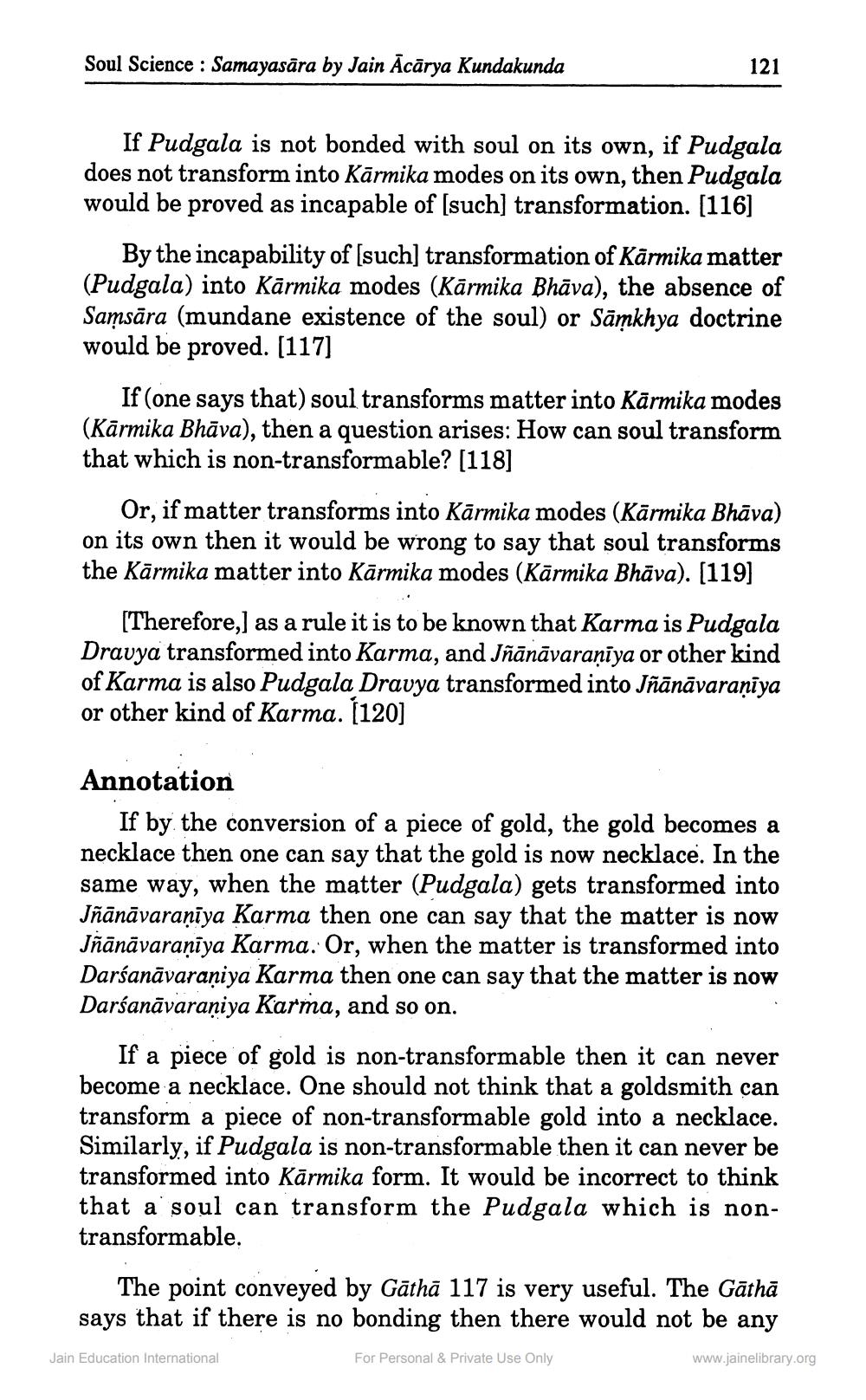________________
Soul Science: Samayasara by Jain Acarya Kundakunda
121
If Pudgala is not bonded with soul on its own, if Pudgala does not transform into Kārmika modes on its own, then Pudgala would be proved as incapable of [such] transformation. [116]
By the incapability of [such] transformation of Karmika matter (Pudgala) into Kārmika modes (Kārmika Bhāva), the absence of Samsara (mundane existence of the soul) or Samkhya doctrine would be proved. [117]
If (one says that) soul transforms matter into Kārmika modes (Kārmika Bhāva), then a question arises: How can soul transform that which is non-transformable? [118]
Or, if matter transforms into Kārmika modes (Karmika Bhāva) on its own then it would be wrong to say that soul transforms the Kārmika matter into Kärmika modes (Kärmika Bhāva). [119]
[Therefore,] as a rule it is to be known that Karma is Pudgala Dravya transformed into Karma, and Jñānāvaraṇīya or other kind of Karma is also Pudgala Dravya transformed into Jñānāvaraṇīya or other kind of Karma. [120]
Annotation
If by the conversion of a piece of gold, the gold becomes a necklace then one can say that the gold is now necklace. In the same way, when the matter (Pudgala) gets transformed into Jñānāvaraniya Karma then one can say that the matter is now Jñānāvaraniya Karma. Or, when the matter is transformed into Darśanavaraniya Karma then one can say that the matter is now Darśanavaraniya Karma, and so on.
If a piece of gold is non-transformable then it can never become a necklace. One should not think that a goldsmith can transform a piece of non-transformable gold into a necklace. Similarly, if Pudgala is non-transformable then it can never be transformed into Kārmika form. It would be incorrect to think that a soul can transform the Pudgala which is nontransformable.
The point conveyed by Gāthā 117 is very useful. The Gāthā says that if there is no bonding then there would not be any
For Personal & Private Use Only
www.jainelibrary.org
Jain Education International




